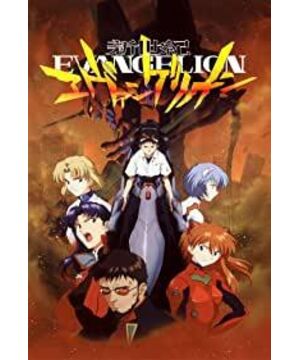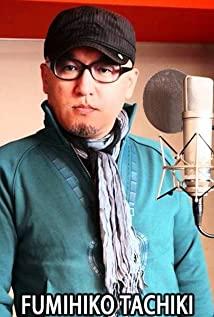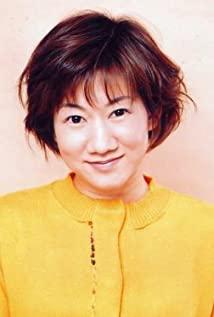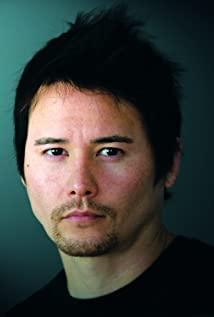Text/The Devil's Hymn
Since its launch in 1995, "Neon Genesis Evangelion" (hereinafter referred to as "EVA") has become one of the most important works in the history of Japanese animation, and countless audiences have expressed their special feelings for it. In 2020, Japan's Asahi TV announced the "Most Popular Anime Songs Election". The second most popular is the theme song "Red Lotus" of the recently popular "Ghost Slayer". The number one is still more than 20. Years ago, the theme song of "EVA", "The Cruel Angel's Action Program".
Of course, the influence of "EVA" is not limited to the animation field. But from the start, it was a singular work:
A fourteen-year-old boy, Shinji Ikari, whose mother had died and whose father treated him extremely indifferently, was summoned by his father one day. His father's purpose was to let Shinji drive the huge humanoid weapon EVA to fight the monster "Apostle" that appeared inexplicably.
Monsters have "AT force fields" that can resist ordinary weapons. Only EVAs that also have "AT force fields" can effectively attack them, and EVA can only be driven by boys and girls. Shinji, Rei Ayanami, and Asuka, who have some psychological problems, are also forced to face the war in their hearts in the battle with the "Apostles".
In "EVA", various metaphors from religion and psychology are everywhere. What is difficult to understand today is that EVA is so obscure and difficult to understand, but it has achieved unquestionable commercial success. To this day, the public is still eagerly looking forward to the upcoming new theatrical version.
1. Born out of pain
Why can "EVA" have such a profound psychological impact on a certain group of people? Like me, many people who don't have much interest in "EVA" and the classic characters of Asuka and Rei Ayanami, and even those giant humanoids fighting plots, why do they elevate this animation to the level of "life", even if they are not afraid of being caught for it. Put on the label of otaku and weirdo?
One of the first things I confirmed is that "EVA" is clearly a work that Hideaki Anno poured into his very personal personal emotions and negative psychological states. The story of "EVA" begins in a low voice, with occasional bright colors in the middle. When Nagisa Kaoru appears, Shinji's heart seems to be saved, and then the director overturns all this and pushes the story to a complete collapse. The "Stream of Consciousness" ending is self-deconstructed and unraveled.
In the theatrical version of "Sincerely For You", this kind of relief turned into Anno Hideaki's angry counterattack. He used strong visual impact and superimposed world-ending plot development to create an emotional catharsis that he didn't know how to end. In the end, there seemed to be hope.
Before creating EVA, Anno Hideaki experienced work failure and four years of struggle. Before EVA was created he wrote: "I wanted to include everything I was in EVA - yes, myself, a man who had done nothing for four years and was torn apart. A man who escaped for four years and survived . Then the thought of 'you can't keep running away' hit me, so I started to work again. And this time, the only thing I wanted was to imprint my feelings in it." - (via Aaron Stewart -Ahn's article, translated by Stark Young)
In the 1980s, Japan adopted a very loose financial policy. In September 1985, the Plaza Accord came into effect, the dollar depreciated, and a large amount of international capital entered Japan's real estate industry, which gave birth to the famous Japanese real estate bubble era. It reached unprecedented high levels until the 1990s when the bubble burst and an economic crisis hit Japan.
From 1990 to 1996, the average annual number of bankrupt companies in Japan was as high as 14,000. Some Westerners believed that by August 1995, the total outstanding loans of the Japanese banking industry had exceeded the total GDP of Japan, and 1/4 of the outstanding loans were non-performing assets. . Japan itself defines the 1990s as a "lost decade".
In "EVA", which was born in 1995, the creators themselves fell into the psychological predicament of depression and escape, and externally, the group was depressed after the bubble economy burst. Ikari Shinji obviously covers Anno Hideaki's personal projection, considering Anno's life state at that time - from a rookie in his early 20s to a middle-aged man in his early 30s who has been knocked down, the Japanese economy has collapsed, and his self-suppression, confusion and The struggle was completely projected into the EVA.
Among the audience of "EVA", not everyone can see this - how to look at the character of Shinji Ikari is the way to distinguish the personality of the audience. For example, in the bullet screen of station B, how much can you see? The vocabulary of "trash", "go to death" and "garbage male protagonist", how much "distressed", "he is only 14 years old" and "like me" depression can be found behind the scenes of different ages, different personalities and living conditions of people.
Or a child who has no sorrow, a pure sunshine in his heart, repays it with incomprehensible pity; The mockery of the empath...
2. Why do you "drive EVA"?
In the first episode, Ikari Shinji came to the NERV headquarters where his father was the commander. The huge and unfamiliar EVA No. 1 machine stood in front of him, and the indifferent Ikari Gendo stood at a far height, ordering his son to board the No. 1 machine and go to the "Apostle" who had just destroyed the entire army. "Fighting, it's like asking him to die.
"Why do you want me to come now? Didn't Dad not need me?"
"Just because there is a need, so I called you here."
"Why did you choose me?"
"Because no one else can."
"How can you do this? How could I possibly drive something like this?"
"If you don't want to do it, go back to me!"
Terrified, Shinji refused to board the first plane. Ikari Gendo ordered Fuyuki to release Ayanami Rei, who was wearing gauze, dripping, and groaning in pain, and asked Rei to drive the first machine to fight the apostles. The apostle's attack shook the base, and Rei Ayanami fell into Shinji's arms in the chaos, and Shinji saw Rei's blood on her hands. He thought to himself:
"There is no escape."
"There is no escape."
"There is no escape."
Then say, "I'm coming", "I'm going to drive."
After watching this animation many times, it's hard not to interpret these plots as some kind of metaphor.
There are often such turning points in life. You thought you were just a child, and suddenly you are taking on inexplicable responsibilities, facing challenges far beyond your comprehension, and you are forced to use weapons you have never used against you that are almost incomprehensible to you The power of your fear transcends all emotions.
When you choose to escape, this fear will be passed on to the obvious "weaker", and the injury she will suffer has actually become the "consequence" of your escape. You don't know why, but in the end, because of your kindness and sense of responsibility, you chose to stand up and let the world hurt you instead of "the weaker".
Therefore, people who do not understand EVA or look down on Shinji are often happy. It means that you don't have to go through pain, or that there is no suffering for your strong backing that can hurt you, or that you already have a very strong heart.
Driving an EVA and defeating the apostles is a cruel mission that came to Shinji inexplicably. This kind of mission runs through the entire animation, and Shinji is constantly swaying in it - in order to replace Ayanami Rei, who was so weak that he couldn't bear it at that moment? In order to gain the approval of "others" including the father? To no longer be abandoned? To protect your friends around you? ...
The loneliness of the animation runs through the whole, no matter whether it is Shinji or everyone around him, none of them show the heroic emotions and fearlessness that are common in hot-blooded teenagers. , each independent, self-protection, but also hurt each other.
How many of you, me, and others can accept their mission on the basis of understanding? Why make money to buy a house and a car? To rack your brains to extract endless substances? These are goals, but in the beginning, how many people were willing to accept this "mission"?
When it all started, why did you drive the "EVA"?
3. "The other is hell", where does "I" exist?
The "spiritual barrier" is embodied as the "AT force field" of the EVA and the apostles, and the change has become the strongest weapon in the EVA battle. As battles are won, "being able to drive EVA" has become the way for Shinji to find "self-worth", but new questions are emerging - so what exactly is "I"?
Whether it is a shortage of funds, or the release of Hideaki Anno, in the last two episodes of the TV version, there is no longer a battle between giant EVAs and apostles, and there is no longer a normal picture of life - replaced by a long and philosophical element. Dialogue with psychoanalysis style, the picture style sometimes becomes pencil hand-drawn, and sometimes jumps out of cluttered lines and color blocks, and Shinji's voice hurriedly appeared in the question and answer.
Because I want to find my value, I have to drive an EVA, so what is "I"? In episode 26, Shinji asked himself this.
His name, image, and gesture flashed across the screen - "These are the appearances I show to others, the symbols called 'I', the things that let others know me, so what am I?"
"You are made by your own heart and the world around you."
"If there is no existence other than yourself, you will not know your own form."
"Recognize the difference with others, in order to shape yourself."
These hard thoughts in Chapter 26 are obviously influenced by Sartre's "otherness is hell". In his novel, Sartre describes the souls of four people falling into hell, but this hell does not have those legendary tortures and brimstone flames. There is only a closed secret room for the four of them. There is no mirror. If you want to see yourself clearly, you can only pass others. description of one's own existence through the expression of others, several people are caught in an endless quarrel.
Only your own world is a completely free world, and if there is no "other" to anchor you, self-existence becomes uncertain.
But as long as the third eye appears, man inevitably loses this freedom. Under the scrutiny of other people's eyes, "I" is bound to be bound in many ways.
As Sartre himself explained, "This sentence is often misunderstood. Some people think that I mean that our relationship with others is always poisoned, always hellish. I mean, if one has a relationship with another If the relationship deteriorates, then the other person is hell. There are quite a few people in the world who live in hell because he himself relies too much on the judgment of others. But this does not mean that it is impossible to have another kind of relationship with others. relation."
What is the essence of man? Marx believed that the essence of man is "the sum of all social relations" in terms of its actuality, and the so-called social relations are basically the connection between "I" and the "world", as well as the connection with the "other"— -You are someone's husband, someone's son, the person in charge of a job, the owner of a code name, these social relationships make up your "existence".
The "other is hell" situation occurs because you can only anchor your own existence through the "other". When you deteriorate in the eyes of others, it is when hell appears.
What Sartre was trying to express was the importance of freedom - Sartre explained: "My intention was to show through this absurd play how important it is for us to fight for freedom, that is, to change our behavior. It's extremely important. No matter how imprisoned the hell we live in, I think we have the right to smash it."
In other words, the key to breaking hell is not in others, but more in one's own choice. In addition to seeing oneself from others, one's self can also gradually become stronger and more complete, find one's own ability to anchor oneself, no longer rely solely on others to confirm one's existence, and finally achieve the "unity of subject and object".
4. "Congratulations" completed
In EVA Chapter 26, the "self-reconciliation" pointed to by Sartre was chosen.
"By the way, I am who I am, it's just that other people do shape my mind."
"You finally understand, idiot Shinji!" After Asuka's classic title, the screen suddenly came to a world completely different from the entire animation. Shinji and Asuka are no longer qualified to drive EVA to fight, and their parents, classmates, and friends have become common teenagers' lives and school routines.
Shinji: "Now I'm not all, there will be all kinds of me, and there will be me who are not EVA pilots."
Shinji: "I hate myself."
"It's you who don't like reality and replace reality and reality in your heart."
"As long as you look at reality from a slightly different perspective, your heart will change a lot."
"There are as many truths as there are people."
"And there is only one truth to you. It's a message that you've compiled with your narrow worldview, adapted to protect yourself. It's a distorted truth."
"It's not surprising that everyone has a narrow view of the world."
"However, all we can do is to use that short scale to measure everything in the world."
"People always see things from a given point of view they get from others."
"Sunny day is a good mood."
"I feel depressed on a rainy day."
"People say it, so you believe it."
"But there are happy things even on rainy days."
"The truth in the human heart is so fragile. Just because of a little change in the way of understanding, it can be completely different."
"People's truth is just that. That's why we want to understand the deeper truth."
"You're just not used to being liked."
"So you don't have to look at other people's faces so carefully."
Shinji: "But don't you all hate me?"
"Are you stupid? That's all you need to do yourself."
Shinji: "But, I hate myself."
"A person who hates himself cannot like and trust others."
Shinji: "I'm cowardly, cowardly, cunning, cowardly..."
"If you know this for yourself, you can treat yourself a little better."
Shinji: "I still hate myself."
"But, maybe I can fall in love with myself."
"Maybe I can stay here, maybe."
"Yes, I'm just myself."
"I am who I am, and I want to be who I am."
"I want to stay here."
"I can stay here!"
...
"Congratulations!"
Congrats on "Finishing".
5. Destruction and Hope
"The 25th and 26th episodes that aired on TV reflected exactly how I felt at the time," Anno said in an interview after the anime ended. "I'm very satisfied. I have no regrets."
But obviously, from the perspective of commercial animation, the ending of "Congratulations" greatly exceeded the acceptance of the general audience at that time. Such an obscure story with no definitive ending did not satisfy the public, and criticism flooded in, and Hideaki Anno even received death threats from fans.
So, in the theatrical version of "Sincerely For You", which is regarded as the "true ending", Hideaki Anno began a grand and extreme response.
Asuka drives the No. 2 machine and is torn to shreds by the mass-produced machines. Shinji becomes a tool for religious ceremonies in the inactive No. 1 machine, and combines with Lilith to gain the authority of "God". Shinji fell into endless pain, depression, and resentment. In his heart, he returned to the room again to talk to Asuka, desperately calling for the latter's rescue. After getting a negative answer, Shinji strangled Asuka in his heart, and the famous episode rang out.
Build a high wall of mind to protect yourself, but when you walk out of the high wall, you are hurt by others. Shinji's ultimate solution is to turn all humans into a pool of orange LCLs, all facing their own judgment.
Shinji created a world where the AT force field was eliminated, the concept of self and other was erased, and of course there was no misunderstanding and harm. Then, after a mess of editing, the picture actually turned into the real world, the audience appeared in the picture, and Hideaki Anno typed a line in the subtitle: "Are you comfortable?"
"Where is my reality?"
"That's the end of the dream."
For a long time, this passage was regarded as a dialogue between Anno Hideaki and the otaku group. It has to be said that many of Anno Hideaki's designs in "Sincerely For You" contain confrontational emotions. But under the almost provocative expression, what he expressed was actually the ending of the TV version. In the midst of the destruction, he preserved that hope and goodwill, and did not let this theatrical version go into complete negativity.
Later, in the continuous dialogue, Shinji finally chose to restore the AT force field, so that he could be hurt again.
"If the presence of others is now expected, the walls of the heart will divide people again, and the fear of others will reappear."
"It doesn't matter."
"It doesn't matter if AT Field hurts you and others?"
"It doesn't matter."
The reason for such a turning point is that Ayanami Rei and Nagisa Kaoru, who talked to Shinji in his heart, represent "hope".
Hope "people may be able to understand each other, just like I like your words."
This is of course the hope of Anno Hideaki.
However, in the ending of "Sincerely For You", Shinji returns to the real world, with only Asuka who once rejected him in his inner world. A typical "other".
Shinji's first move was to grab Asuka's neck.
Asuka reached out and touched Shinji's cheek, Shinji cried and stopped, but Asuka said the last line "You are disgusting".
The "other" still exists. The possibility of "hell" still exists.
Then how do you feel about it? Is she taking pity on you? hate you? Still understand you?
What will you do next? Hostility, ignorance, fear, change?
It can be said that Anno Hideaki opened the ending of "Sincerely For You" to everyone. How you understand it is up to you.
————————
For me, the meaning of "EVA" has long gone beyond a cartoon itself. In a sense, the experience of watching "EVA" can almost be regarded as a subversive event in my personality development. Therefore, I wanted to write an article or several articles explaining "EVA" in detail, but it was always difficult to write. . Finally, there is such a text that is neither interpretation nor deconstruction. As for the meaning, it may not be important to me anymore.
View more about Neon Genesis Evangelion reviews











